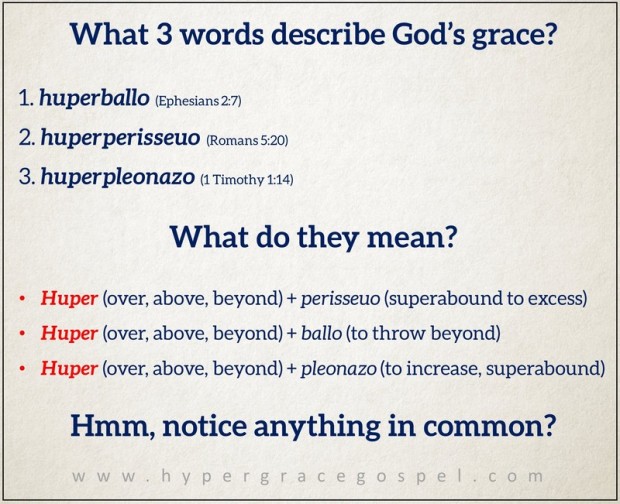Personally I don’t set much store by the word ‘Biblical’, although I confess to using it occasionally. Now, if something is said to be ‘Biblical’, it usually means it (whatever it is) fits with someone’s interpretation of Scripture – and that ‘someone’ may be an individual, a group, or an entire denomination. And so one person’s definition of ‘Biblical’ is always going to be different, however slightly, from someone else’s.
The problem comes when rifts are caused by the different interpretations. These rifts can be such that people actually part ways over them; in my opinion, I would much rather take the mature view that actually people are entitled to believe what they like and I’ll just let them get on with it. But sadly many people can’t just let it go; rather than talk about horses or football, they’d rather bottom out their differences before any meaningful relationship can be allowed. This is simply dysfunctional and is rooted in the desire to always be right at the expense of everything else, relationships included.
The idea of ‘hypergrace*’ is one of these things that causes division, in the same way that Jesus said, “I have not come to bring peace, but a sword” (Mt 10:34). It’s going to strongly divide opinion! Now, many believers, myself included, believe that hyper-grace was the Gospel all along, and that much other stuff has been added in later – such as all the Yeast of the Pharisees stuff like legalism and all that. And I just can’t keep a lid on hypergrace; I find it thrilling: exciting, energising, revolutionary and yet ancient, solid and reliable.
I wouldn’t dream, though, of pushing my beliefs on others. Wait, what? You write a blog about your beliefs, and you go on forums to push your beliefs!
Well, yes, this is how it will appear on the surface. But I write about hyper-grace because I want others to know that there is freedom out here, outside the walls of religion. I discovered (or, more accurately, I was shown) that freedom, and I want others to know it’s there. But some people, comfortable with their beliefs, are not happy about venturing out here – and that’s all fine. But the problem comes when those people of ‘faith’ do indeed start pushing their beliefs on others, in a sort of compulsory manner (usually backed by threats of Hell) and that’s when the trouble starts. I simply let people decide for themselves and do not demand a response. As for the forums, I publish what I believe so that people reading the forums can see that not all Christians are horrible and judgemental – as so many of them sadly seem to be on the forums – and that it is possible to be a believer without having to be like that and to believe everything that they too believe. It is a fact that there are many shades to the Christian faith, and I like to showcase this.
Anyhow, that’s just background. I wanted to let you see this article by Paul Ellis; if you are in any doubt at all about the truth of the hyper-grace Gospel, take a look.
Is Hypergrace Biblical?

Hypergrace, according to a mainstream Christian news magazine, is a dangerous and unbiblical teaching. By proclaiming the unconditional love of God and forgiveness for all, hypergrace preachers have taken grace too far. We have made grace unbalanced and radical.
Hypergrace, apparently, is unbiblical. It’s a modern invention based on a few scriptures taken out of context, and it does not reflect the whole counsel of God.
This claim – that hyper or extreme grace is unbiblical – is easy to test. All you need is a Bible.
Six pictures of God’s grace
In him we have redemption through his blood, the forgiveness of sins, in accordance with the riches of God’s grace. (Ephesians 1:7)
God is rich in grace, but how rich is he? The word for riches in this verse (ploutos) is the same word used to describe God’s wisdom and knowledge (Rom 11:33). God is as rich in grace as he is in wisdom. How wise is God? He is exceedingly wise! He is hyper-wise. As for one, so for the other. Limit God’s grace and you limit his wisdom.
And God raised us up with Christ and seated us with him in the heavenly realms in Christ Jesus, in order that in the coming ages he might show the incomparable riches of his grace, expressed in his kindness to us in Christ Jesus. (Ephesians 2:6-7)
Other translations refer to the “full wealth,” “extraordinary greatness,” and “immeasurable (limitless) riches” of God’s grace. According to this scripture his grace is surpassing and incomparable meaning “it can’t be compared with anything else” (NIrV). Whew. Calm down, Paul, you’re getting carried away! Your epistle is unbalanced and extreme.
And God is able to make all grace abound to you (2 Corinthians 9:8)
The word abound (perisseuō) means overflowing as in “more than you need.” It’s the same word used to describe the leftovers after Jesus fed the 5000. Excess food reveals excess grace. God gives you grace for your need and then he gives you extra grace that you don’t need until you are overflowing and spilling grace all over the place.
In other words, God is generous to the point of lavish wastefulness.
For if by the transgression of the one, death reigned through the one, much more those who receive the abundance of grace and of the gift of righteousness will reign in life through the One, Jesus Christ. (Romans 5:17)
The abundance (perisseia) of grace doesn’t sound that impressive in English but it’s super-impressive in the original language. The word literally means super-abundant. What superman is to man, superabundant is to abundant. Read it literally and Paul is talking about the superabundance of God’s favor, which is an apt description of God’s exceeding, incomparable, and over-the-top grace.
The Law came in so that the transgression would increase; but where sin increased, grace abounded, all the more (Romans 5:20)
Paul uses the same word as before – the one that means super-abundant – and adds the prefix huper or hyper, which means over, above, and beyond (huperperisseuō). So if you think God’s grace is super-abundant to the point of superfluous excess, you are halfway there. And if you think it’s hyper-, you’re getting warmer but you’re still not quite there, for Paul literally preaches a hyper-super-grace!
The grace of our Lord was poured out on me abundantly (1 Timothy 1:14)
Yes, it’s the same old word in English but English is a woefully poor language for describing the extraordinary riches of God’s grace. Here we have another compound word, huper (over, above, and beyond) plus pleonazō, which means to increase or super-abound. As with his letter to the Romans, Paul literally describes God’s grace as hyper-super-abounding.
If we are to agree with the Bible, we should speak about grace the way the Bible does. We should use big, hyperbolic words and flowery phrases like this:
The grace (unmerited favor and blessing) of our Lord [actually] flowed out superabundantly and beyond measure for me… (1 Timothy 1:14, AMP)
Biblical grace is hyper
The apostle of grace demolishes the notion that hypergrace is an unbiblical or modern message, and we’ve only looked at six scriptures.
We have not examined the extreme grace of a God who loved us while we were sinners (Rom 5:8), who took the legal charges against us and nailed them to the cross (Col 2:14).
We have not considered the hypergrace significance of the cross and the empty tomb. On account of grace and at great personal cost, God tore up the books recording our sins (2 Cor 5:19).
Nor have we considered the testimony of a universe that is inexplicably expanding at an ever-increasing rate because it isn’t yet big enough to contain all the good things a hypergrace God has planned for us.
To suggest that God’s grace is less than hyper is unbiblical and blasphemous. It’s like saying God is good but he’s not that good, he’s wise but not that wise. Diminish grace and you diminish God.
Get your understanding of grace from Christian magazines, and you can be forgiven for thinking that hypergrace is bad, modern, and unbiblical. But read the Bible and you will see that hypergrace is a small word for describing an extraordinary reality: The One who sits upon the throne of grace is exceedingly rich in grace and he has poured out his measureless grace upon you!
Hypergrace preachers have not taken grace too far. On the contrary, we have not taken it far enough. We have not begun to scratch the surface of God’s goodness towards us.
To look at the original article, click the logo below:
*What is ‘hyper-grace’? It’s simply the way that St. Paul describes God’s Grace in his letters. The words we translate like ‘exceedingly’ and ‘abundantly’ are actually much more emphatic in the original Greek, and more and more believers today are catching sight of what God’s Grace really means. But of course it generates controversy – Grace always does – and many mainline Church leaders are afraid of it. I will let you judge for yourself why this is….and I also recommend Paul Ellis’s book, ‘The Hyper-Grace Gospel’. The link to it on Amazon is here or click the picture below:






This is an excellent article, Tony. I really liked it!
Thanks, Tim. Yeah, Paul writes some excellent stuff 🙂
I think the quote you used by Paul Ellis is where it’s at. In effect, something less than grace, has too often been taught in churches. I’m not keen on the term “hyper grace” though because as of and in itself it implies something beyond what we find in the bible. It clearly is not. I suppose the term is useful, in that it is shaking up traditional ideas of grace. And it is useful, because church traditionally has failed miserably in communicating what grace is really about. I sincerely hope it is a phase, that resets our common language to common meanings of words. Otherwise, 10 or so years down the line, we’ll have something like “super hyper grace”, or “absolutely fabulous grace” as a new moniker for progressive Christianity.
Craig, I don’t think I can add anything to what you’ve put. You’re right: the problem with the label is that this is what Grace should have been viewed as all along.
Maybe so long as our definition of Grace doesn’t lose its Pauline roots, as in using the language that Paul used, then we won’t go far wrong. If it’s held correctly, the definition shouldn’t need further embellishment! 😉